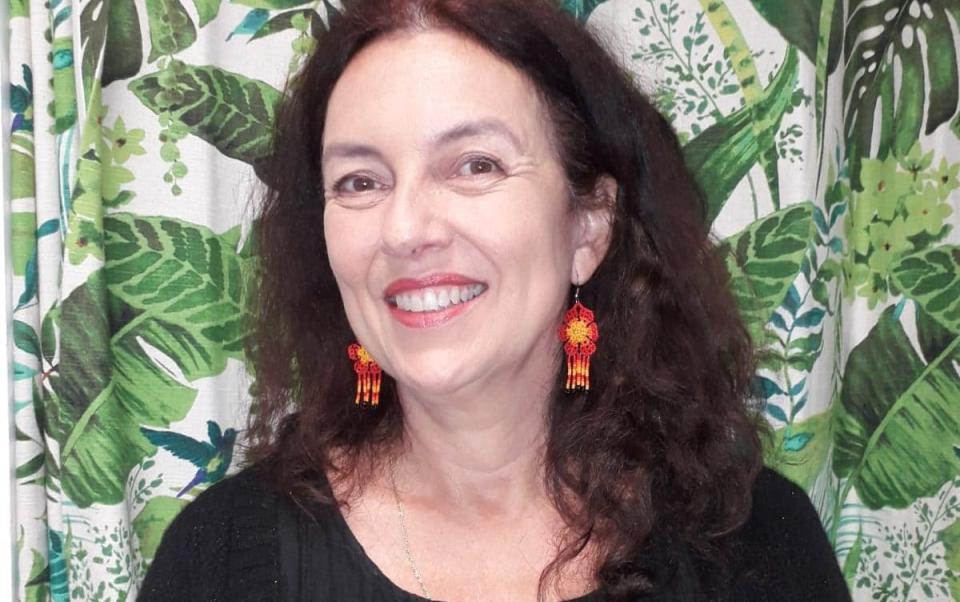‘When my child came out as trans, I went through a mourning process’

My youngest child, born male, sent me a long email when she was 15. To my utter shock, in it she told me she was “trans”. Included were a number of websites to educate me about young transgender people, including, as I remember, lists of what parents should understand and some dos and don’ts. I bristled at these, but mostly felt bewildered and alarmed.
My first reaction was to shout down the stairs to Morgan – as she is now – that: “I love you whatever you are!” At the same time, in my heart of hearts, I couldn’t believe it was happening. There had been no signs of my little one wanting to dress up in girls’ clothes or wear jewellery.
We agreed that evening not to talk any more about it because it was “too awkward”, so we sat on the sofa and watched a film together.
I am from a Dutch background and I knew from family discussions that parents in Holland were encouraged to support their trans kids in their new identities as much as possible, not least because they are at high risk of suicide. Sadly Morgan was one of these. She suffered from severe body dysmorphia during sixth form and I had to collect her from the hospital a couple of times.
I couldn’t stop myself feeling that it was my “fault”. I felt guilty for taking her away from her father (from whom I’d separated seven years previously), giving her no male role models. I also felt I had been absent, as I had suffered a mental health crisis when she was 14 and this was the time when she began to question her gender identity.

After sending me the email telling me she was trans, she asked me to book her an appointment with our GP. To my surprise the doctor acted as though she saw this kind of thing often and referred Morgan to the the Child and Adolescent Mental Health Service (CAMHS). Morgan had therapy once a week there. She benefited from that support but it didn’t help her cope with her gender dysphoria. What she really wanted was something else: hormones.
CAMHS referred her, and me, to the Gender Identity Development Service. They offered us two female therapists, who would see us separately and then together. This was a breakthrough for me as I could express my doubts, frustration and outmoded beliefs to the therapist, who was an expert in helping parents to come to terms with their children’s gender identity.
In the end, Morgan still struggled greatly as the assessment to provide young trans people with hormone blockers prior to the age of 18 is rigorous and she did not meet their criteria. She had to wait nearly four years until they could provide an advanced referral to the adult services when she turned 18. We thankfully had the resources to get help from a private service in the meantime, which was able to support her much faster by giving her a complete assessment and prescribing hormone therapy.
Morgan has just turned 21 and I am in awe of her. She’s an artist and is studying illustration at university. She’s also very funny, compassionate and has lots of wonderful friends. Our extended family has been generally accepting as well. When Morgan came out to my mother by telephone, my mother (she later told me) cried after she hung up the phone – not because she didn’t want to have a trans granddaughter, but because she knew what a difficult journey Morgan had in front of her.
Morgan now wears colourful gender-neutral clothing, but about four years ago she bought a beautiful skirt and would wear it out. We didn’t live in a very tolerant town and I was afraid she would be in danger. She mentioned recently the reason she no longer wears overtly feminine clothes is because of comments, slurs and looks she received when she did.
Morgan’s sister, Anna, who is three years older, was the most supportive. She said she learned about trans issues from “the online feminism I grew up with”. She corrected me when I said insensitive things. I also learned from her to put away photos of Morgan when she was little as they can be very painful for trans teenagers.
Anna remembers wondering why I was so wrapped up in myself at the time “when the priority was to make sure that Morgan didn’t kill herself”.
I think many parents of trans children might need to go through a mourning process, as I did, but it is best to shield your child from this. We believe we are losing the little child we brought up with love, but I’ve come to realise that that’s not really the case: we’re not really losing anyone, it’s just another part of them growing up and discovering who they really are. It isn’t our job to decide how they should express themselves in the world.
We all want our children to be happy but, as Morgan points out, a big part of that is learning the best way to support them through whatever journey they might find themselves on. Even if that ends up challenging our existing beliefs.

